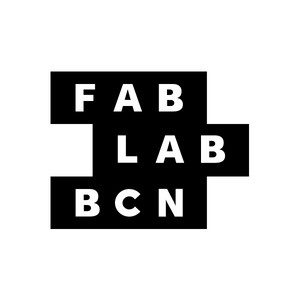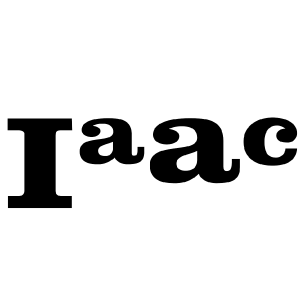
Future Technologies For Sustainable Fashion
A 2-month educational program fostering collaborations in the emerging field of Fashion Technology
Future Technologies for Sustainable Fashion (FTSF) is a 2-month educational program in the context of the EU Horizon 2020 research and innovation project ATTRACT. It aims to foster collaborations in the emerging field of Fashion Technology with a critical approach under the spectrum of sustainability, future scarcity, and space habitation.
This program is done in collaboration with Fab Lab Barcelona | IAAC, IED and IdeaSquare-CERN.
Course Length
NOT ACTIVE
Modality
NOT ACTIVE
Price
1.350€
Where?
Classes mainly in Fab Lab Barcelona, some at IED-Barcelona
Language
English
Applications Deadline
April 1º, 2024
Research Trip
3-day research trip to IdeaSquare/CERN (May 22-24, 2024). Flights and accommodation are covered by the program.
Presentation
During 2 months, students will work intensively to develop emerging technologies that respond to societal needs through a hands-on approach, using digital manufacturing, first-person perspective methodology, multiverse thinking, and embodied design ideation methods. The resulting projects will be led by mixed student teams from the two participating institutions, FLB and IED, working under the guidance of a broader and multidisciplinary pool of experts in order to ideate and prototype solutions through a hands-on approach.
Student teams will work on researching and prototyping solutions using agile manufacturing technologies, new materials, and wearable computing that will be presented at the end of the course to an invited jury of experts from IdeaSquare at CERN (the European Organization for Nuclear Research), and related industrial partners.
Structure
The course will be organized around multidisciplinary student teams and supported by tutors and experts in developing novel technologies applied to fashion, textiles, and wearables. This year’s technology is centered around 3D printing and SoftRobotics.
Students will be introduced to state of the art in fashion, sustainability, and emerging technologies. By working from a 1st person-perspective, students will reflect on their socio-economic context to identify their research interests and to generate preliminary ideas. Students will team up and prototype using embodied design ideation (EDI) methods. EDI methods allow students to engage in more personal, intuitive, and situated ways with the research topics they are exploring. Students accelerate the prototyping phase by working within a specific context, with their bodies and materials, aligning their ideas with the practice.
The program will be run with different types of activities:
| Introduction sessions: at the beginning of the course, students will be coached to create mixed teams taking into consideration multiple intelligence skills and academic backgrounds to apply their talents and capabilities better. |
| Visit IdeaSquare/CERN: in the first part of the program, students will travel to IdeaSquare to dive deep into multiverse thinking methodology that will enrich their skills and forecasting capabilities. |
| Intensive sessions: in some weeks, students will meet in intensive sessions to boost the status of their work. |
| Weekly sessions: students will work together to get familiarised in use the infrastructure of the two schools. |
The expected outcomes range from proposals that innovate the textile and fashion production processes to sustainable product development using new technologies or novel solutions that tackle how fashion is consumed and discarded. The deliverables will consist of a physical prototype and a video presentation showing the design process and final results.
To ensure the established learning outcomes, IED and Fab Lab Barcelona | IAAC put at the disposal of the students a broader and multidisciplinary pool of experts with different backgrounds that will work jointly with the student’s team and advice their project development. Students will also ideate and prototype their proposals using the two institutions’ laboratories. Instructors will also foster peer coaching so that students can transfer their knowledge to each other and enrich their points of view with the use and appliance of different kinds of design methodologies.
To enrich the process, students will do a Research Trip to Geneva for an intensive experience within IdeaSquare at CERN, being IdeaSquare the liaison organization for this program. Students will meet the IdeaSquare team and relevant researchers and collaborators in masterclasses, presentations, and workshops to deep-dive into the organization’s environment.
Previously to this travel, and to take full advantage of this opportunity, students will work on concept proposals that could be directly tested with the application of the multiverse thinking methodology.
Student Profile
We wish to reach all creative disciplines dealing with Design and the Maker Movement: creative players, makers, designers (Fashion, Product, etc), artists, architects, scientists, students, etc.
Discover student projects from the previous editions of the program here.
Partners
Istituto Europeo di Design IED
For more than fifty years, Istituto Europeo di Design has been operating in the fields of education and research in the disciplines of design, fashion, visual communication, and management. Today, the IED is a constantly expanding international network in 13 cities around Italy, Spain, and Brazil that issues first-level academic diplomas and organizes three-year courses, Master courses, continuous professional development, and advanced training courses. Since 1966, the IED has developed innovative and diversified teaching methodologies, focused on synergies between technology and experimentation, creativity, strategies and integrated communication, market issues, and a new form of professionalism. Thus the Istituto Europeo di Design offers young professionals working in the fields of Fashion, Design, and Communication the knowledge and the effective tools they need to cater to the constantly developing requirements of the working world.
Fab Lab Barcelona
Fab Lab Barcelona, part of IAAC, is a think and make, a laboratory for research, services and education, driving and developing investigations into citizen-centered technology, digital fabrication, productive citizens and emergent futures. We work in strategic areas of expertise that drive our programs and research: Civic Ecology, Distributed Design, Emergent Futures, Future Learning, Materials and Textiles, Productive Cities and Sense Making. Founded in 2007 it was the fourth Fab Lab to join the Fab Lab Network initiated by MIT’s Center for Bits and Atoms (CBA) and the first one in the European Union.
Institute for Advanced Architecture of Catalonia – IAAC
IAAC is a center for research, education, production and outreach, with the mission of envisioning the future habitat of our society and building it in the present. IAAC follows the digital revolution at all scales (from bits to geography, from micro-controllers to cities, from materials to the territory) to expand the boundaries of architecture and design and meet the challenges faced by humanity. IAAC is an open, independent, and radical non-profit foundation, with 20 years of activity; inspired by the values of Barcelona, the capital of architecture and design, where urbanism was invented and where a local high-quality and innovation-oriented research is connected to an international network of excellence in technology, architecture, and society fields.
IdeaSquare – CERN
IdeaSquare is the innovation space at CERN using collaborative methodologies, access to CERN expertise and cross-connectivity to ideate solutions for the future of humankind. IdeaSquare raises interest in CERN beyond purely scientific discovery. The activities carried out at IdeaSquare tie science innovation to the United Nations’ Sustainable Development Goals (SDGs), and work towards laying out a better future for our society.
Do you want more information? Contact [email protected]



